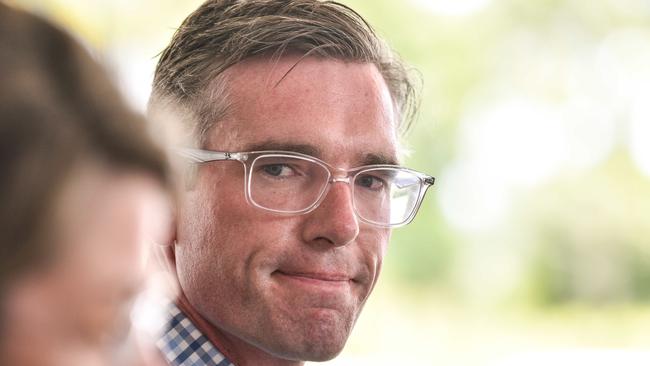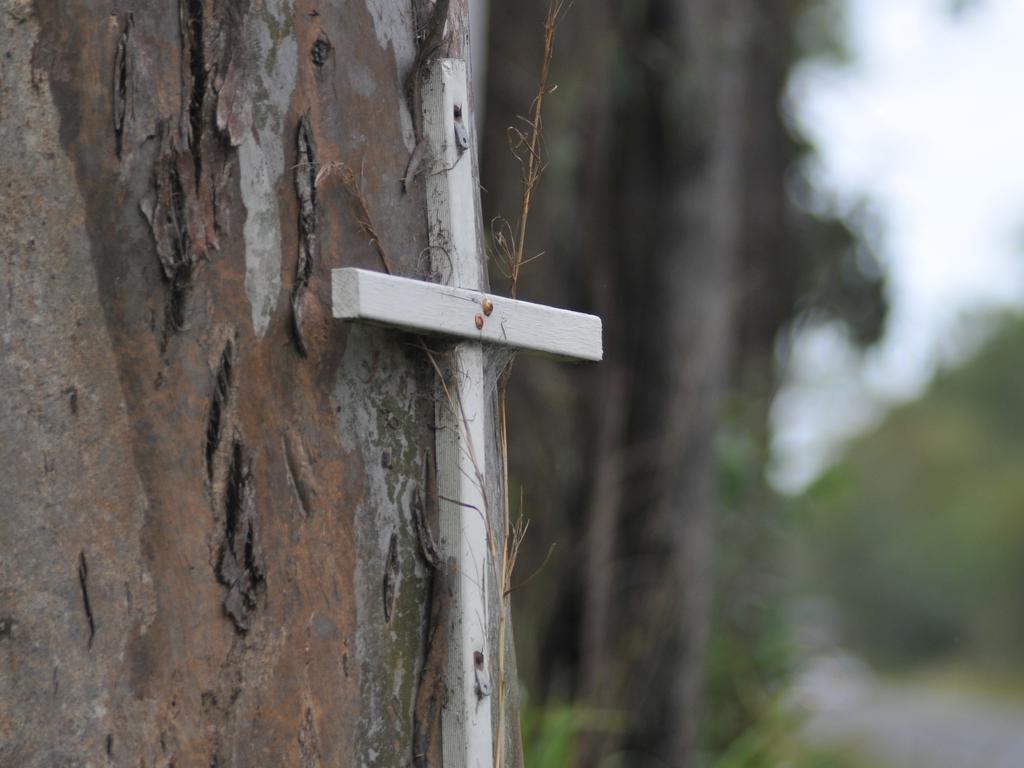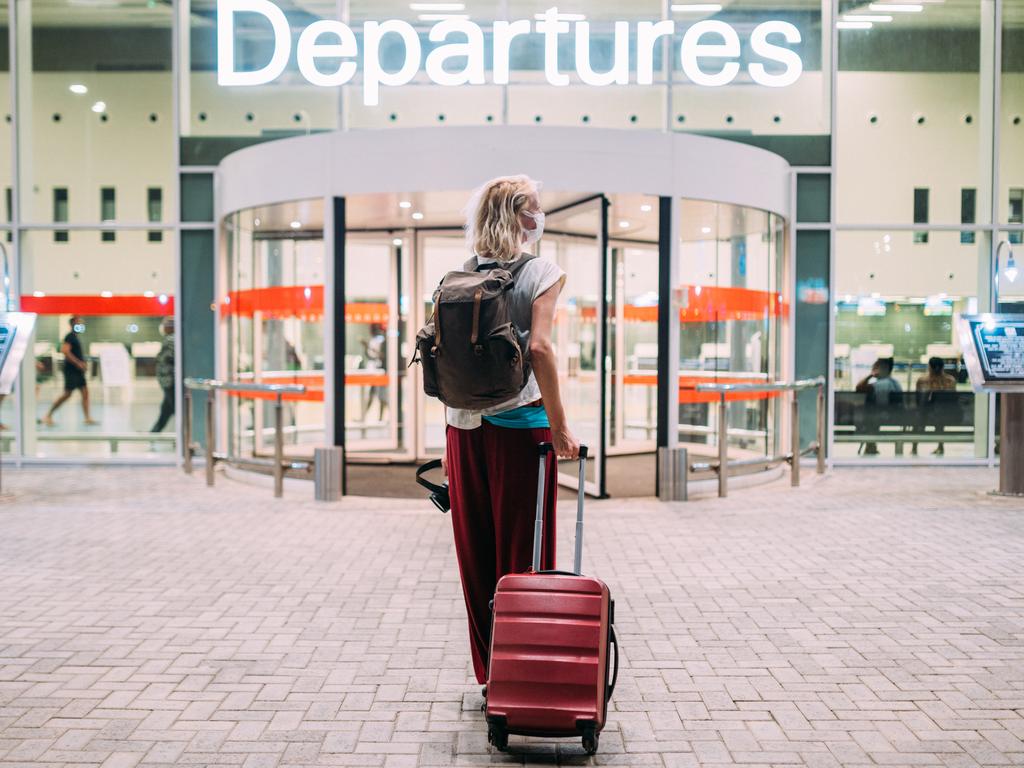Dominic Perrottet resists calls to tighten Omicron restrictions
NSW Premier Dominic Perrottet is resisting calls to revive mask mandates and tighten restrictions in the face of rising Covid-19 hospital admissions

NSW Premier Dominic Perrottet is resisting calls to revive mask mandates and tighten state restrictions in the face of rising Covid-19 hospital admissions, despite agreement among some business leaders “low cost” measures could be deployed to maintain consumer confidence.
The Business Council of Australia said on Sunday it would not oppose the reintroduction of mandatory Covid-safe measures, such as mask-wearing indoors and QR check-in requirements, provided health data suggested such infringements on personal liberties were again necessary.
State leaders are continuing to weigh their options as Covid-19 cases and hospital admissions show signs of an upward trajectory. Queensland health authorities are predicting a case surge in January after 42 people – a doubling of infections – was reported over the past two days. In Victoria, some 392 people are receiving treatment in hospital, with 41 currently on a ventilator.
From Tuesday, Tasmanian residents will be required to wear masks again after three fresh cases were recorded in that state, bringing its total to seven since the border reopened. South Australia recorded 80 new infections on Sunday, with four people in hospital, while the ACT recorded 18 cases, with three in hospital.
Despite these considerations, Health Minister Greg Hunt said it was unlikely Australia would be forced to re-enter lockdowns of the kind seen in some European nations, such as the Netherlands.
“We don’t see that’s a likely situation in Australia,” Mr Hunt said. “We have one of the highest vaccination rates in the world, and a very different set of circumstances.”
Hospital admissions have risen steadily in NSW over the past week to reach 227 admissions as of Sunday. NSW Health said of the 2566 fresh cases recorded, additional testing had established 313 infections were of the Omicron variant. Officials said Omicron would likely account for most of Sunday’s cases once testing had been completed.
Mr Perrottet urged the community not to overreact to daily reporting of case numbers, which, with Sunday’s additional case numbers, took the state’s total to more than 10,000 Covid-19 infections over the previous week.
He urged the community to seek out booster shots, emphasised the notion of personal responsibility, and said most people presenting to ICU facilities – currently 28 people in NSW – appeared to be unvaccinated. About 5 per cent of the NSW population is yet to receive a jab.
“ICU presentations are the key metric for us,” Mr Perrottet said, echoing similar remarks made by Victorian health authorities. “I‘m incredibly confident as Premier that our health system is the strongest in the country, that we can deal with the challenges that come our way.”
Mr Perrottet added NSW had some of the highest vaccination rates of any jurisdiction on the planet, a fact which had given him some cause for optimism. “That enables us to learn to live alongside the virus. Our ICU presentations are still in their 20s – that’s incredibly positive,” he said.
For now, Mr Perrottet’s cabinet colleagues support his stance, although a small number of dissenting ministers have voiced concern, alongside some health bureaucrats, over the recent easing of restrictions and the need to reintroduce masks.
Victorian authorities had been scheduled to ease mask mandates for retail settings in December but the measure was postponed due to rising case numbers and the advent of the Omicron strain.
At the most recent meeting of the NSW crisis cabinet last week, at least two ministers advocated for a cautious approach, particularly on mask-use, advocated by NSW chief health officer Kerry Chant. Most at the meeting, however, concurred with Mr Perrottet’s decision to leave the state’s settings unchanged.
BCA chief executive Jennifer Westacott praised the state’s approach to managing the virus and helping to end the “kneejerk decision making” by other jurisdictions, and which had risked sabotaging the nation’s recovery through the holiday season.
That said, Ms Westacott advocated for an approach that acted in line with “the risks and with the best possible evidence”, including a reintroduction of restrictions.
“This might mean considering low-cost measures like masks or reactivating QR check-ins, but only if necessary,” she said.
Mr Perrottet said new measures would be considered should the facts change around the impact of the virus. “When there is evidence in front of us (that) we need to potentially tighten restrictions, we will,” he said.
The remarks from the BCA were supported by NSW Labor leader Chris Minns who said his party would give bipartisan support to the Perrottet government in the event restrictions needed to be tightened. “This is too important to get wrong,” he said.
In Queensland, Covid-19 infections doubled to 42 cases over the past two days, and while officials have not moved to reintroduce restrictions, the data prompted a warning from chief health officer John Gerrard that Omicron was becoming the state’s dominant strain.
Deputy chief medical officer Sonya Bennett said the sheer number of cases emerging around the country remained concerning because, regardless of severity, the requirement to self-isolate would impact businesses, industry and individuals.
It comes as British researchers at The ICL published research over the weekend stating there was “no evidence” to suggest Omicron was milder than Delta.
Additional reporting: Joseph Lam, Nicholas Jensen






To join the conversation, please log in. Don't have an account? Register
Join the conversation, you are commenting as Logout